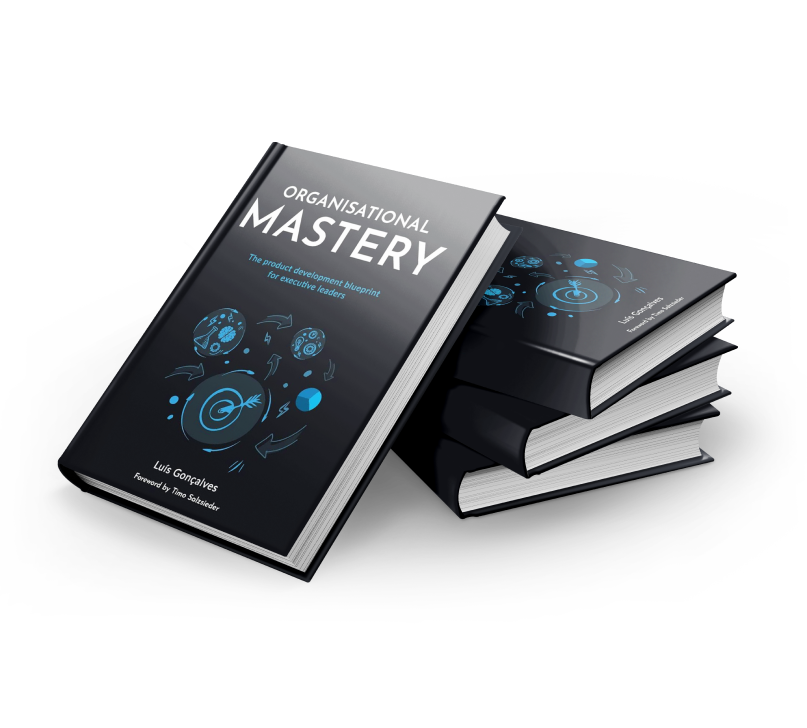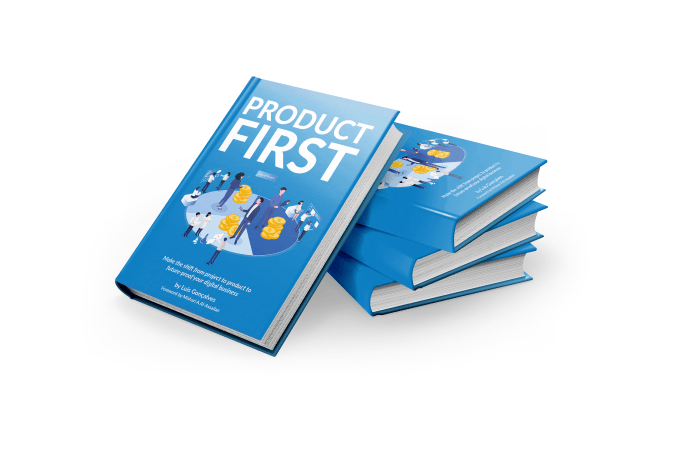Share this
Objective VS Goals: Every Executive Should Know the Difference
by Luis Gonçalves on Jan 13, 2024 5:53:27 AM
One of the most important skills that a modern leader can possess is the ability to align their entire workforce to the big vision of the company, that's why talking about objectives vs goals is very important!
Remember that aligning your entire organisation is just a small skill set that you must possess in order to ADAPT your company to the digital era! If you are an executive leader looking to ADAPT your company to the digital era, check more about our approach by clicking the link: ADAPT Methodology™.
I’ve published many blog posts on the topic of alignment and execution but I never touched in a topic that I have been getting a lot of questions, let’s discuss two interchangeable words in the game of scaling businesses - objective vs goals.
And the truth is, while it’s been around for many years now, the OKR framework is still a concept that hasn’t been fully implemented by the majority of companies I’ve had the pleasure of sharing my insights with.
Goals are a crucial element in business success. Goals are powerful. They drive motivation and provide direction. Goals empower an organisation, particularly the employees. When they are aware of the company’s long-term vision, they feel more motivated to contribute to the company’s success.
But goals are often high-level and long-term. To achieve such goals, specific actions have to be done. These actions have to be measurable. And for a company who wants to unify and cascade the long term goal into a more actionable piecemeal goal, the OKR framework is a superior tool.
Goals and objectives are terms that are often used interchangeably in business. While they could point to the same thing, they have clear differences.
How companies see “goals” today
Goals are what an organisation expects to accomplish after a specific period. In business, one desirable outcome is profitability. But a company could have many goals.
For example, they may aim to become a market leader, grow 10x bigger in the next five years, or provide innovative technological solutions to developing countries, etc.
While it isn’t a requirement, goal-setting has so many benefits to business organisations and has no downsides. For one, goals are a measure of success. It is hard (almost impossible) to say that a company has been successful without a set of goals to compare against.
Another thing, goals keep the organisation aligned. It ensures that everyone - from the CEO and leaders down to the bottom employees - understands what the company is trying to achieve.
For the management, goals provide a greater rationale for making decisions concerning staffing, acquisition, product development, production, sales programs, and many others. Goals unite the organisation by creating a clear picture of where the organisation is headed.
Examples of Business Goals:
- Become a market leader in the tech industry.
- Increase profit margin.
- Provide better customer service
- Increase efficiency.
What are “objectives”?
We said goals are high-level. And in order to achieve our goals, we need to narrow it down. You’ve probably heard about different methods to achieve a goal, such as the SMART approach. It’s perhaps one of the most popular, but in this post, I explain how it could backfire.
A better approach, which is used by some of the most successful companies like Google and Intel, is the OKR methodology. Check out this quick OKR guidelines to understand how OKRs can help your team set effective goals.
And if you are convinced (hopefully you are, after reading the benefits), check out this comprehensive guide and I’ll show you how exactly OKR is done.
An objective is almost similar to a goal, but it is much clearer and targeted. Think of it as a sub-step towards your goal. Objectives are narrow and involve specific tasks that have to be completed in a specified timeframe.
Examples of Objectives
- Reduce production cost by 15% in six months.
- Cross-train employees to be able to handle both customer inquiries and technical issues in the next quarter.
- Increase sales volume by 20% in the next 12 months.
- Launch new product feature by December 2020.
Objective Vs Goals - Key Differences
Now you know what goals are and what objectives are. But does it really matter?
It does, of course.
Both goals and objectives are critical to achieving success. You can’t just create a goal and stop right there. At the same time, you don’t just start writing your objectives without knowing what your organisational goals are.
Goals and objectives are different in terms of scope, measurability, tangibility, and timeframe.
Scope
As you can see based on our examples, goals are broader. They are more like generic statements of what a company wants to achieve. In a nutshell, goals are general intentions while objectives are precise actions to accomplish a task.
Furthermore, goals are wider in scope. It generally pertains to the desired outcome of the organisation as a whole, or a specific department, team, or business unit. On the other hand, objectives are narrow and are created to support a specific goal.
For example:
If the company goal is to increase the profit margin then a possible objective would be to cut down the cost of production by a specific percentage (say, 15%).
There can be several objectives under one goal.
Other objectives for the goal above would be:
Streamline production to minimise the need for overhead for the next cycle.
Increase prices by 10% by January 2020.
Or Find more affordable suppliers.
See the difference?
Measurability
Goals may or may not be measured. Objectives are always measurable. When a goal is discussed, there are no criteria established to measure its progress or determine whether the goal has been reached or not.
In contrast, objectives come with a concrete set of performance measurements that help you determine whether they have been achieved.
Timeframe
Goals are generic and are often long-term. They don’t have specific deadlines. A goal can be an ongoing motivation that is used to inspire leads, managers, and employees in corporate planning. Meanwhile, objectives have a due date.
Most objectives are short-term and are usually set within that goal. During the execution of the objectives, changes can be made at each milestone to help improve company performance.
Tangibility
Another major difference between goals and objectives is that the latter is more targeted and measurable while the former are tangible and are directed at achieving non-measurable things.
Putting it All Together
Goals and objectives are crucial elements to business success. They both set the direction that a company needs to take to reach success.
Goals and objectives are often used interchangeably in the business context. However, they have several major differences. Goals are high-level, generic statements that inspire the organisation to improve. Goals reflect the company mission, creating a clearer picture of where the company is headed.
On the other hand, objectives are specific and time-bound. While goals may or may not be measured, objectives require a set of criteria that has to be met in a specific period.
Both goals and objectives play a role in the lean management framework. Before coming up with specific, measurable actions, the organisation has to set goals first, for which the objectives will be based upon.
Did you like this article?
We enable leaders to become highly valued and recognized to make an impact on the World by helping them to design Digital Product Companies that will thrive and nourish in the Digital Age, we do this by applying our own ADAPT Methodology®.
Share this
- Agile Methodologies (18)
- Product Strategy (18)
- OKRs (16)
- Scrum (16)
- Product Mindset (14)
- Project To Product (10)
- Agile Retrospectives (9)
- CoPs (9)
- Knowledge Sharing (9)
- Time To Market (8)
- Product Discovery (7)
- Continuous Improvement (5)
- Strategy (5)
- Scrum Master (4)
- Content Marketing Strategy (3)
- Product Owner (3)
- Technical Excellency (3)
- Digital Transformation (2)
- Innovation (2)
- Scaling (2)
- Team Building (2)
- Business Model (1)
- Cost Of Delay (1)
- Customer Feedback (1)
- Customer Journey (1)
- Customer Personas (1)
- Design Thinking (1)
- Digital Leadership (1)
- Digital Product Tools (1)
- Go To Market Strategy (1)
- Google Design Sprint (1)
- Lean Budgeting (1)
- Lean Change Management (1)
- Market Solution Fit (1)
- Organisational Impediments (1)
- Outsourcing (1)
- Product (1)
- Product Metrics (1)
- Product Roadmaps (1)

Organisational Mastery
Get your free copy

ADAPT
Get your free copy

Product First
Get your free copy


